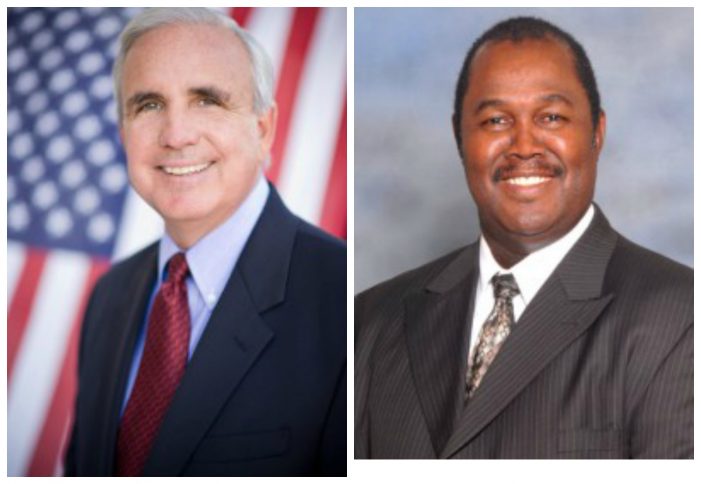Scaling back the Miami-Dade Police public corruption unit is actually a good thing for local investigations and is being done in an effort to work more closely with federal authorities.

That’s what Miami-Dade Police Director J.D. Patterson, who took over after the last chief suddenly took an early retirement last year smack dab in the middle of the absentee ballot fraud investigation, said Tuesday.
Patterson told the Miami Herald late Tuesday that the changes made to scale back the public corruption investigation unit are actually good for our local cases and that the “realignment” or folding into the internal affairs division was accompanied by more cooperation with an FBI task force.
“It’s an effort to enhance our synergy and our collaboration with our partners who are already here… It’s not an effort to avoid or dilute anything,” he was quoted as saying.
But let’s look at the numbers ourselves, shall we? I do not trust county math.
According to the memo written by Patterson Monday, there were 17 public corruption officers transferred. Fifteen others are reassigned from the Public Corruption Investigations Bureau to the Professional Compliance Bureau, Public Corruption Investigations Section. Because suddenly public corruption only warrants a section.
So added together, there were 32 officers in public corruption (which wouldn’t include any positions that were never filled after people retired) about this time last year, which is when the investigation into the Hialeah boletera linked to Miami-Dade Mayor Carlos Gimenez began.
Now, to the 15 that are part of the new-and-probably-not-improved merged internal affairs/public corruption unit, Patterson adds another 10 who are reassigned from the Professional Compliance Bureau to the Professional Compliance Bureau, Public Corruption Investigations Section. But we really cannot be sure if that means they’ll be doing anything different from what they do now.
Even using my fingers, that comes to a total of 25. And last time I checked, that is less than 32.
Diluted.
And that’s assuming that they will all still be dedicated to public corruption cases and not professional compliance or internal affairs complaints. And that is not counting the four detectives that are detached to this aforementioned FBI task force. which may be the extent of the cooperation with the FBI.
Patterson was not able to give me the interview I requested Tuesday afternoon, but he told the Herald that the move would mean more coordination with FBI investigators and that the public corruption unit — one lieutenant, one sergeant and seven or eight detectives now — would now work strictly on “county matters.”
He did not, however, say who would determine what those “county matters” would be.

Gimenez laughed off any criticism of the move, saying that the union president who believes it could be politically motivated has political motivations of his own.
While it is true that the union has endorsed other candidates after a long and bitter feud with the mayor, who has gotten about $60 million in concessions from them, he can’t blame this on the FBI.
“They asked for some help on public corruption, and I said that we would provide that help,” the mayor told the Herald, adding that, in fact, it could be a better option in some county cases to let the FBI take the lead “while still having Miami-Dade police officers involved in the investigation.”
I might agree with him there. But doesn’t the four detached detectives cover that. How is the rest of the new Professional Compliance Bureau’s Public Corruption Investigation Section going to be working with them?
Patterson told the Herald the same thing: That it was going to improve collaboration.
But wouldn’t there already be collaboration if the FBI were seriously looking into the breaking of federal campaign laws? Also, last I checked, the FBI can’t handle local or state cases.
Maybe it’s not such a bad thing, however, that the FBI take the lead and the center and the back end of this investigation, too. Especially seeing as how the boletera‘s notebooks disappeared for months — rumored to be stashed in some major’s desk drawer — and search warrants may have been denied on a campaign headquarters where absentee ballots were being delivered.
Maybe it is better if the FBI were to take over and even include, in their investigation, sworn depositions from some of these reassigned public corruption officers?
Maybe — and maybe should be good enough in this context — it’s time to get the Department of Justice involved. There are too many reasons to believe that maybe this absentee ballot fraud investigation that implicates so many public officials — and the fallout from it — needs to be investigated itself by a higher power.
Hey, I know. We should call on one of our U.S. Senators or Congressional electeds to get the federal authorities to look into what could, maybe, be a deliberate thwarting of an investigation into public corruption by public corruption officers at the orders of someone higher up.
Ooooh, oooooh. I know. I know. Someone should suggest it to U.S. Rep. Joe Garcia, whose campaign was tainted by illegal absentee ballot fraud that led to the firing of his chief of staff.
Think of the P.R. value.

